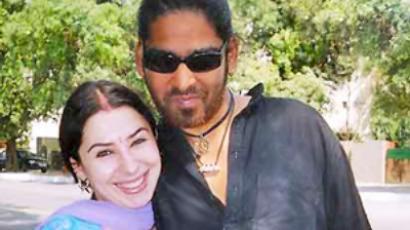Tatars alive and kicking in Siberia
The vast Siberian lands have seen it all – from the great Mongol hordes of the Middle Ages to the Communists’ rule. Scattered around the wildest regions are a few Tatar villages, trying to preserve their ancient culture.
Tatars, with their distinct language, culture and religion, were the masters of Siberia for centuries before the Russians came.
Now, only scattered settlements, like Yurt Balyk, remain.
The villagers face many of the same challenges their ancestors grappled with hundreds of years ago. The settlement is isolated and extremely cold.
Ninety-eight-year-old Magroy is the oldest person in Yurt Balyk, and the only one to have memorised the Koran.
Hers is the story of a community touched by the upheavals that shook Russia in the 20th century, yet destined to stand apart from its surroundings.
Magroy says she lost her husband in WW2. She never remarried, working on a collective farm to support her three children.
“I am happy now; I have my children and grandchildren. But I have been through tough times. Through a lot of personal tragedies,” Magroy Zaynulina says.
Magroy says she was discouraged from practicing Islam. A village school was built in place of the mosque in Soviet times.
And though the villagers still maintain old rituals, most don't follow formal religion.
But not everything has been forgotten.
Through the centuries Tatars were renowned as great hunters and fishermen.
Iskander Ibragimov is building a dugout – a prehistoric boat made out of a hollowed tree trunk.
This is the only place in Siberia where the technique is still passed down through the generations.
But river-fishing alone is not enough to survive on.
During Communist times, many villagers worked at a milk-processing plant nearby. It went bankrupt fifteen years ago.
Now, those who haven't bolted for the city, keep their own animals.
“We live fine. We are not rich, we are not poor. There is fish, there is livestock and horsemeat, there are potatoes. As long as we have our health – we are fine,” Iskander Ibragimov says.
Yet if food is plentiful enough, entertainment is harder to come by in Yurt Balyk.
That's why Iskander takes out his accordion during those long winter nights; his listeners are grateful for the music.
He says this is happiness.













